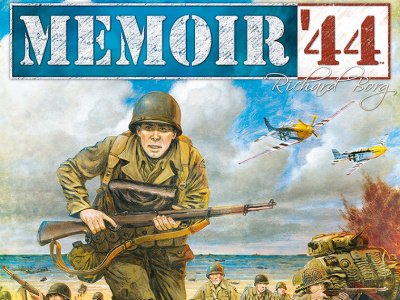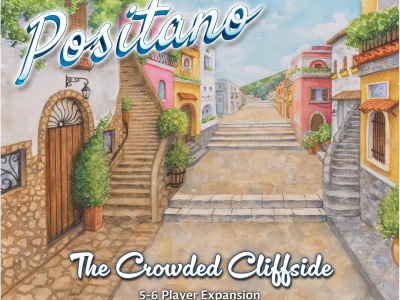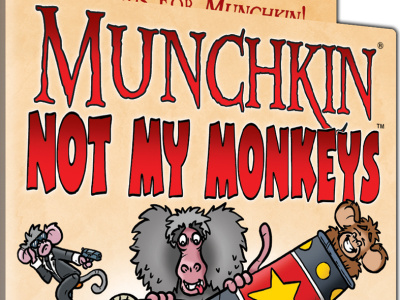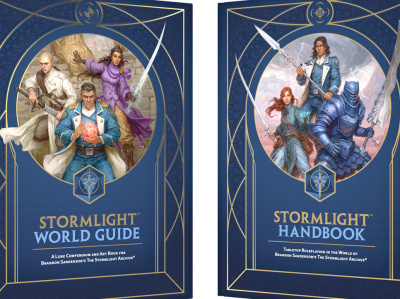 Fantasy Flight Games is one of the most important companies in the hobby games industry. With footprints in board, card, miniature, and roleplaying games, and successful games in each, the company has an unusual span of products and a high rate of success. We recently had a chance for an extended chat with Fantasy Flight Game CEO Christian Petersen on the games market and his company’s place in it. Here is the full version, a small portion of which was recently printed in Internal Correspondence #84.
Fantasy Flight Games is one of the most important companies in the hobby games industry. With footprints in board, card, miniature, and roleplaying games, and successful games in each, the company has an unusual span of products and a high rate of success. We recently had a chance for an extended chat with Fantasy Flight Game CEO Christian Petersen on the games market and his company’s place in it. Here is the full version, a small portion of which was recently printed in Internal Correspondence #84. In Part 1, we talk about the history of the company, the state of the market, and Fantasy Flight’s board games. In Part 2, we talked about keeping games in stock, FFG’s LCGs, Star Wars, and 2014.
For our readers who may not be familiar with the history of the company, could you start out by telling us a little about how Fantasy Flight Games came about?
I started the company back in 1995, and my first instinct was to get into the business of importing and translating European comic books and graphic novels. That didn’t fare so well. If you recall, those heady days of 1995 were not exactly the best time to launch a little graphic novel company, not only because of the market, but because graphic novels were not all that big of a deal back then.
So that didn’t go very well for us. But the nice thing about starting in that area is that we learned how to make print manufacturing, and started to learn the tools of the trade as far as the various desktop platforms needed to do publishing. So with the comics taking a serious southward turn, I turned more to my own personal hobby, which was hobby games, and developed the first board game that we ever made, called Twilight Imperium.
Since then we have built and are trying to make the best hobby games for hobby game stores that we can.
You mentioned “we.” Were you the sole founder or did you have partners?
I was the sole founder. There was another partner very early on from Indonesia, and he decided to return to Indonesia after the first six or seven months. I was alone then when we started the games. Then I had a few people helping me, and I had a part time helper for a while; but I didn’t have my first full-time employee, Todd, until 1997.
Let’s bring it up to the present day. We’d like to get your impression of the overall condition of the hobby game market.
I’d say the overall condition of the hobby game market is excellent. Over the last 19 years that I’ve done this, I’ve seen various ebbs and flows in the marketplace, and various interests congregate in specific areas, but I think now we have a greater influx of interested customers from all over in addition to a very broad sphere of interest across many different genres, whether that be collectible card games, miniatures games, board games, or games that fall in between those overlapping categories. So I find that the marketplace is about as robust and as healthy as it’s ever been, and I’m encouraged by the diversity in the marketplace that makes me hope that there could be some duration to that health.
We’ve never seen anything quite like the recent run in the hobby market.
I know, it’s really amazing. What I’m really encouraged by is that when we’ve seen booms in the past they’ve been very specific to a certain game or certain category, whether it was d20 or Pokemon, or Magic in the middle of the mid-to-late 90s. Now we’re seeing this boom, but I think except for Magic, which is resurgent and powerful, you’ll struggle to see one particular line whose fading would necessarily break the momentum in the hobby.
Why do you think that is, that the market is so healthy right now?
If I thought there was one particular reason, I’d have some news for you! The reality is that there have been a number of different factors that have occurred over the years. First of all, the actual quality and the visual appearance and the sheer enjoyment of games that have come out has just improved year over year over year. And I’m really proud of our contribution to this, and we certainly have not been alone in making really great quality content.
There have also been two other important factors. About 10, 11 years ago, we had a very large influx of gamers, very young gamers, in the Pokemon and Yu-Gi-Oh! category, and I think a certain percentage of them, in their contact with gaming stores, or their parents’ contact with gaming stores, became aware of this other marketplace and that has created some of the groundswell we’re seeing.
Third, I think that the technology sector and the computer game generation has started to become aware that some of the roots of the computer games that are out there today really harken back to this hobby gaming and specialty gaming field. So what we’ve seen with the greater interest is that people who have emerged into the software hobby have really taken it upon themselves to also be interested in these alternative ways of playing games. One thing I noticed through the past decade was how big of an interest group for our games there was among software game developers. So I think the interest in software games has helped the notion of hobby games, as people bring gaming into their lives more.
So there’s been a wide variety of different motions that would have made people more interested in these games, and I’d like to think that we have some great product for them as they enter that field, and that in itself has caused more energy in the coverage and more energy in the ability for the mass market to be receptive to these niche hobby, specialty science fiction, fantasy, horror themes.
As you cover on your site, you know that some of the biggest television shows that we have now are really fantasy geek shows, whether it be Game of Thrones (see “’Game of Thrones’ Sets Viewer, Pirate Records”) or The Walking Dead (see “’The Walking Dead’ Round-Up”) and so on. And that has helped us, inured this greater coverage.
We see Wil Wheaton’s TableTop show making some significant inroads, and attracting new audiences, by being able to profile games in a way that I certainly, in my experience, had never seen before in terms of an effect on sales based on press coverage (see “The ‘TableTop’ Bump”).
It’s definitely a unique thing in our history also. You mentioned the connection with interest in video games feeding back into their origins in tabletop games. Some companies are very explicitly mining that connection by developing apps that tie to their tabletop games. Where is Fantasy Flight in that world?
Well, there are a couple of types of apps you can do that tie to tabletop games. We’ve done some outright game conversions into the digital field. That’s an area we’re very cautious about, but that we’re still actively exploring to see how we can do this in the best, most effective way.
The other type of apps are the types that digitally support your tabletop games, and we’ve been fairly active in those and are still trying to discover the best ways to achieve a nice balance there. For example, we’ve done die rolling apps with custom dice and functionalities for our Star Wars games. We’ve done some support apps for our Arkham Horror line.
So there are two different fields here: there are tool set apps, which can help you better enjoy your physical games, and then there are the actual digital conversions.
Our most successful digital conversion (and we’ve only done two), is our Elder Sign: Omens app, which harkens back to our Elder Sign physical game. We’ve been very pleased with the reception of that and continue to use this approach, and we feel it has really helped the visibility and the actual sales of the physical game. So there’s a real awakening to that for us that these things are not necessarily mutually exclusive. I know you can have a successful software title and actually drive sales and interest back into the physical game.
We also think that’s something that a company like Days of Wonder, who has done some great apps, has seen as their digital side, for example with Ticket to Ride, has really grown their audience and has driven more activity back into the hobby market (see “15 Million Online ‘TTR’ Games”).
Can we drill down a little bit into the different categories that Fantasy Flight is active in? In your board game space, you have a wide range of families of games, with core games and expansions and support products, and the families move on and off our bestseller chart depending on the season and what releases are happening. So overall it’s hard to tell; what’s your best-selling board game family?
Well, we have a number of families that we’re very, very pleased with. I think the most famous would be the Arkham Horror series of board games, and we just launched a major new title for that, a sister game to Arkham Horror, called Eldritch Horror. That’s done very well for us.
Another important board game for us is the Game of Thrones board game, which is a game we did a second edition of. Our first edition sold very, very well back in the last decade; but of course now, borne on the increased popularity of that brand, and on what we think, not self-servingly I hope, is a pretty good game, it really turned out be a huge success for us.
Some other series of games that are workhorses for us, that we’re really proud of, include the Battlestar Galactica game, which despite that brand being off the air for a couple years, continues to be completely amazing for us.
Some of the classics we have brought back; Cosmic Encounter is a very strong performing line for us.
There’s a great number of other ones, there are probably obvious ones that aren’t coming to mind, but those are some titles that your retail readers will know well.
Click here for Part 2.







